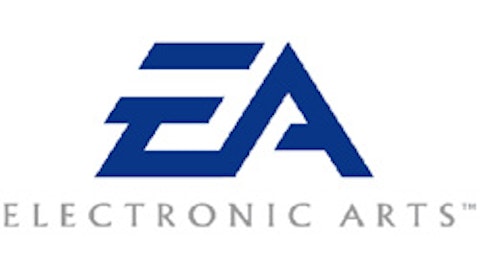Gamers and investors are still reacting to the recent news that the Blizzard Entertainment branch of Activision Blizzard, Inc. (NASDAQ:ATVI) has moved most of its developers off the company’s long awaited next MMO, codenamed “Titan” onto other projects.
VentureBeat first broke the story that Blizzard recently reassigned as many as 70 of the 100 developers rumored to be working on the company’s next big title, leaving only a core group behind to redesign the game’s main concepts from scratch. Top executives at the company were said to be unhappy with the direction the game was taking and decided to change course. VentureBeat and other outlets reported that Titan, previously expected by some analysts to be revealed in November at the company’s Blizzcon convention in Anaheim, may now not see a public release until 2016 at the earliest.
After a day of speculation across the gaming community, Blizzard released an official response:
“We’ve always had a highly iterative development process, and the unannounced MMO is no exception. We’ve come to a point where we need to make some large design and technology changes to the game. We’re using this opportunity to shift some of our resources to assist with other projects while the core team adapts our technology and tools to accommodate these new changes. Note that we haven’t announced any dates for the MMO.”
Activision Blizzard, Inc. (NASDAQ:ATVI) hit a new 52 week high of $16.11 during early trading the morning of Tuesday, May 28, prior to VentureBeat’s story hitting the Internet late Tuesday afternoon. The stock has trended upward for most of 2013 but shares retracted over the next week, closing at $14.39 by the closing bell on Tuesday, June 4. With the Titan delay officially confirmed, gamers, analysts and investors are now speculating on where Activision Blizzard, Inc. (NASDAQ:ATVI) goes from here.
Blizzard’s cash cow continues decline
This isn’t the first time Blizzard has delayed a highly anticipated game. The company has reset a number of previous high profile games during their development cycle, including the original Starcraft,Warcraft 3 and 2012’s Diablo 3, still the best selling PC game of all time.
The reason the Titan news is giving some greater pause is that the game is expected by both gamers and investors to be Blizzard’s spiritual successor to the extremely successful MMO World of Warcraft, a game that continues to shred subscribers in its 9th year of existence.
Blizzard’s most recent earnings report on May 8 disclosed that its flagship title lost 1.3 million subscribers during its January to March quarter and now has roughly 8.3 million active accounts.
That is a dramatic dip from the nearly 10 million subscriptions the game boasted shortly after the launch of Mists of Pandaria, the game’s latest expansion pack released in September 2012, and is a one-third reduction from the 12 million subscribers the game boasted in 2010 at its peak.
Still, even at 8 million subscribers, the game brings in more than a billion dollars in revenue every year for Activision in subscription fees. But company executives have stated publicly they expect WoW’s decline to continue as it ages. World of Warcraft has been so successful for so long that it’s hard for some investors to imagine what Activision Blizzard, Inc. (NASDAQ:ATVI)’s bottom line will look like when the game is no longer padding the company coffers. Titan is widely viewed as Blizzard’s opportunity to reboot its MMO business in an attempt to duplicate World of Warcraft’s financial and critical success.
With Titan’s rumored delay to 2016, Activision now faces a tough question. How will Activision Blizzard, Inc. (NASDAQ:ATVI)’s revenue be affected over the next two years to three years if WoW continues to hemorrhage subscribers at a time when the company doesn’t have its next big thing ready to pick up the torch?
Titan delay presents an opportunity for the competition
The list of MMOs that were destined to become “WoW killers” over the last 5 years is long. But games like Bioware and Electronic Arts Inc. (NASDAQ:EA)‘ Star Wars: The Old Republic, Funcom’s Age of Conan, and Trion Worlds’ Rift never approached Blizzard’s success. Some of these titles failed so badly going up against Blizzard’s behemoth that the game was forced to change its entire business model as a result. But that has actually turned out to be a good thing for some.
Electronic Arts Inc. (NASDAQ:EA) received attention last fall when it moved The Old Republic off its monthly subscription model to a free to play business plan. Free to play gives the player access to most areas of the game, but charges fees for exclusive novelty and vanity items such as costumes or an in-game pet that will accompany the player on his or her adventures. EA reported this past spring that the change to free to play doubled their monthly profit from the game and brought in 1.7 million new players. The move saved a dying game and gives EA the ability to recoup their $200 million investment over the long term. It also means that The Old Republic will remain a viable option for WoW players looking to try something else.
Other companies have taken notice of EA’s turnaround. Trion Worlds will be moving Rift to a similar free to play system June 12.
Despite the turbulence that other companies have faced when trying to go toe to toe with Blizzard, that hasn’t stopped some from trying to slay the dragon.
There is a new batch of supposedly “killer” MMOs in development that are set for release within the next year or two. Zenimax Media is working on an online version of its popular Elder Scrolls series. NCSoft and Carbine Studios have generated buzz with Wildstar, a title that has gotten points from gamers in early testing for offering a number of features that World of Warcraft players have long clamored for, such as player housing.
Japanese developer Square Enix (NASDAQOTH:SQNXF) will be re-releasing its Final Fantasy XIV title later this year as well. The game bombed critically and financially during its initial 2010 release. After publicly apologizing for the sorry state of the game, the company started from scratch with a new staff. The new version of the game, dubbed “A Realm Reborn” has gotten positive feedback from gamers in early testing. Square Enix, which saw its CEO resign prior to posting an extraordinary loss of $134 million for its fiscal year ending March 31, will be going all in on FF XIV in an attempt to get the company and the Final Fantasy franchise back on track.
As the games industry continues to adapt to the digital era, a number of high profile online games that aren’t technically MMOs also pose a threat to Blizzard’s dominance. Riot Games’ League of Legends, an online battle arena game, boasts more than 30 million players under its free to play model and has generated considerable attention in the industry. Bungie, the renowned creator of the Halo series on Microsoft’s Xbox consoles will be creating an online world with their next game, Destiny, expected to release on current and next gen consoles in the next year.
The bottom line is there will soon be more high profile choices than ever before for World of Warcraft subscribers looking to jump ship to a new game. With Titan no longer one of those options in the short term, Blizzard’s competitors have a golden opportunity to draw in disgruntled WoW players. If they succeed, it could be more difficult for Blizzard to win back some of its old players when Titan finally does ship.
Evolving with the Industry
While there surely is concern at Blizzard over Titan’s delay, the company is still one of the most successful game developers in the world and the Irvine, CA company will certainly use every advantage it has to keep its place on the throne.
In fact, Blizzard has already made adjustments to its operating procedures over the course of the last year.
The developer is notorious for taking its time on releasing new content for World of Warcraft in between the game’s major expansions. That seems to have changed with Mists of Pandaria. The developer has dutifully released a major update, called a patch, for Mists about every 2 to 3 months since its September 2012 release. Blizzard developers have gone on record with internal data showing that former players tend to resubscribe to the game for new content releases. The stated goal is to release this content more frequently in order to keep players — and their wallets — engaged with the game.
Blizzard has also shown that it’s willing to evolve its traditional business models as the industry changes. The developer recently announced Hearthstone, a free to play online card strategy game based in the Warcraft universe. The game, set for a beta release in the next few months, is the company’s first attempt at the free to play model. In Hearthstone, players will be able to collect new cards faster by paying a small fee for a new digital pack.
Hearthstone also represents another first for the company, as it will be releasing on Apple’s iPad, Blizzard’s first foray into the tablet market. The company will also be returning to its console roots with Diablo 3, porting the popular PC game for release on Sony’s Playstation (and possibly Xbox) by the end of the year.
In addition, new expansions for World of Warcraft, Diablo 3andStarcraft 2 are expected to be shown this November at Blizzcon.
The corporate suits at Activision might prefer Titan be released sooner rather than later, but given Blizzard’s sterling track record and Activision’s other high profile franchises like Call of Duty, it’s doubtful anyone is panicking over the delay. Activision now enters a period that will be watched closely by gamers and investors. The company’s ability to stave off competitors and retain its player base across all of Blizzard’s current titles will be a key factor in determining the company’s bottom line over the next two to three years. The future success of Titan and Activison’s long term prospects may also depend on it.
Jason Gallagher has no position in any stocks mentioned. The Motley Fool recommends Activision Blizzard, Inc. (NASDAQ:ATVI). The Motley Fool owns shares of Activision Blizzard.
The article Blizzard “Resets” Its Next Big MMO: What Does It Mean for ATVI? originally appeared on Fool.com and is written by Jason Gallagher.
Jason is a member of The Motley Fool Blog Network — entries represent the personal opinion of the blogger and are not formally edited.
Copyright © 1995 – 2013 The Motley Fool, LLC. All rights reserved. The Motley Fool has a disclosure policy.




